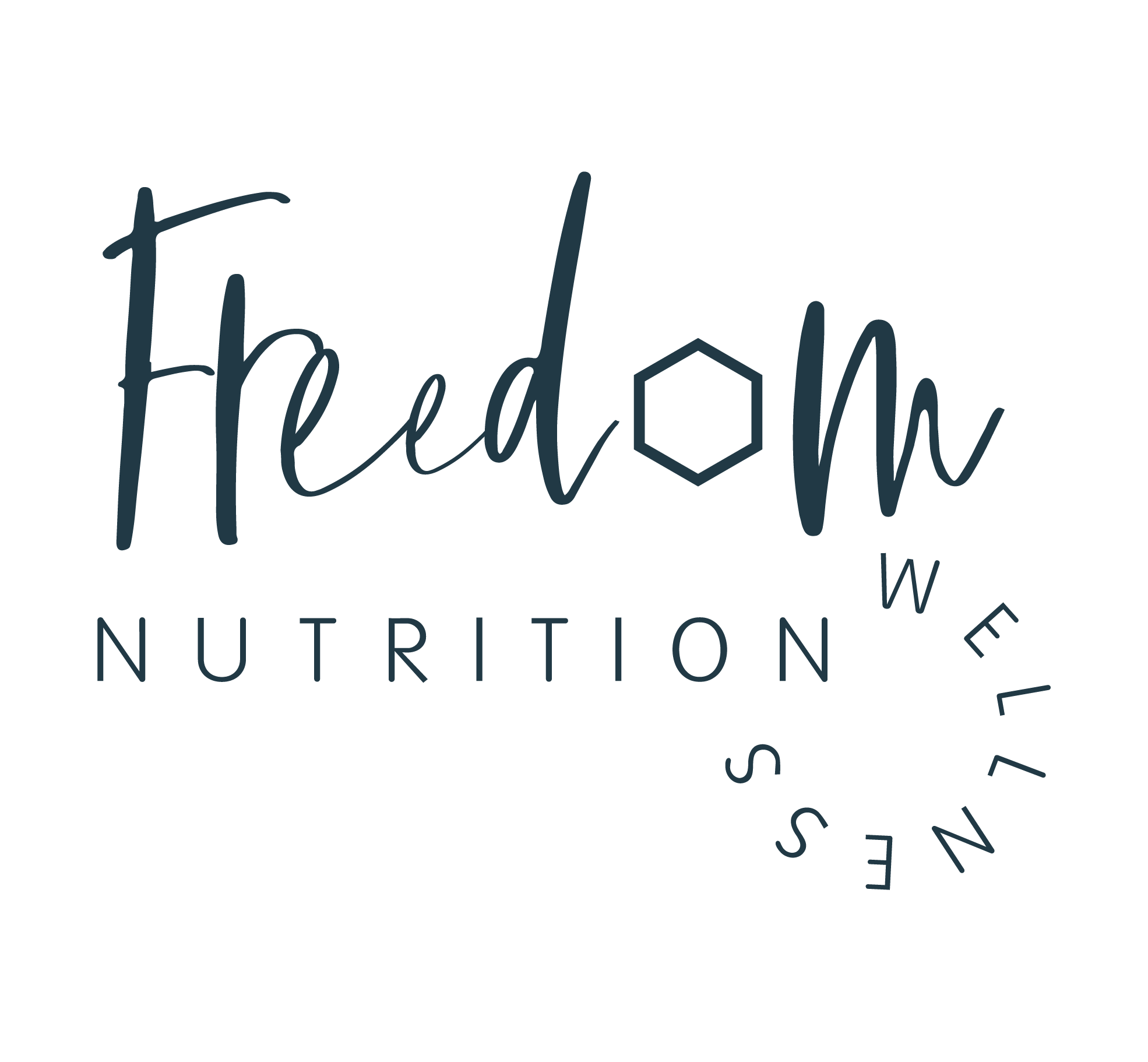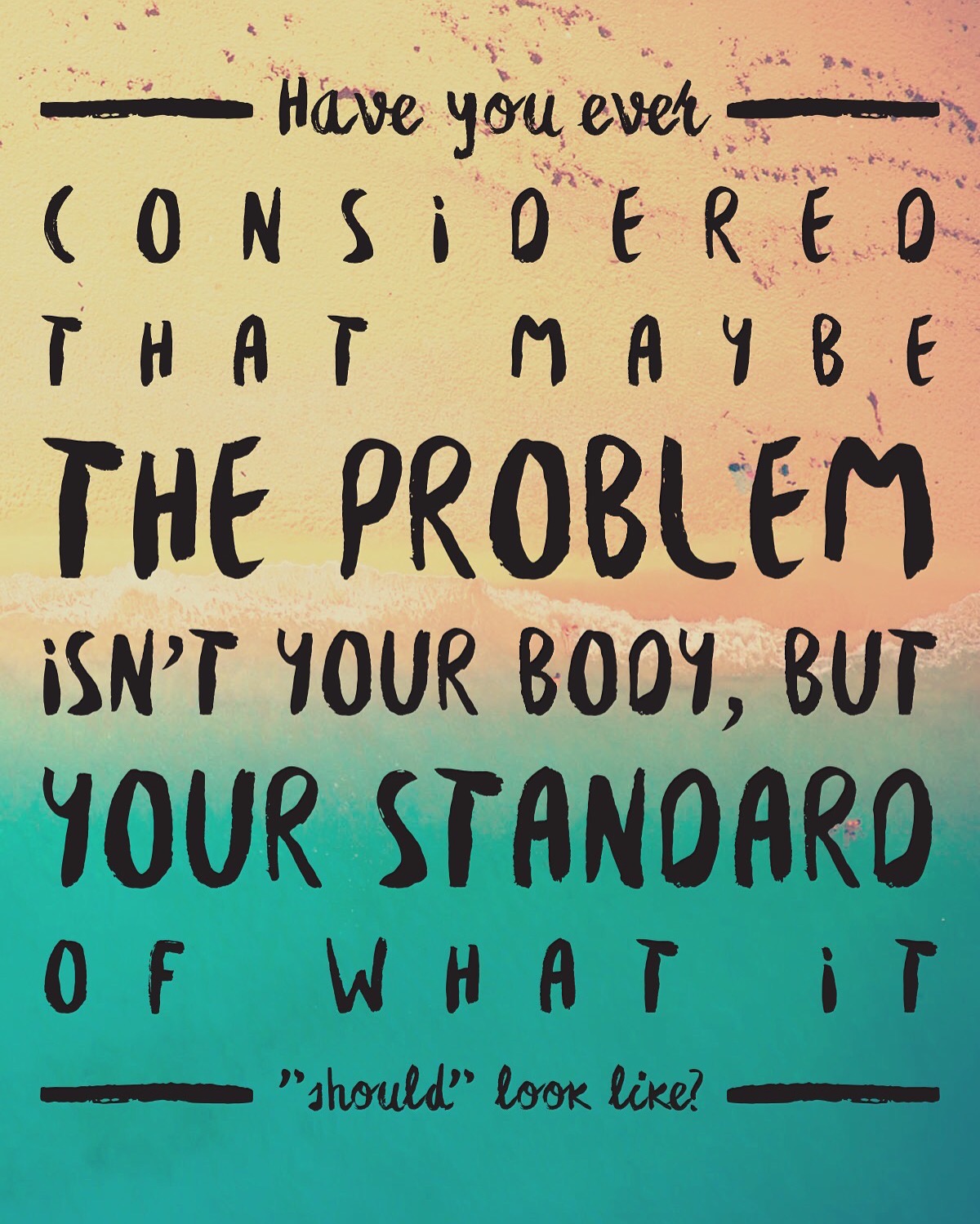What Is Intuitive Eating?
I mentioned in my last post that I have been learning about and incorporating the principles of intuitive eating into my own life. I also mentioned how much freedom I have found in my own life regarding food and exercise with this new mindset shift. I wanted to share with you all about this approach in the hopes that you find some freedom yourself! Expect more posts to come on this subject.
Intuitive eating is a term used by many different people with varying definitions, but the intuitive eating approach I am talking about is a defined approach with specific principles and research backing it up. The major leaders of this framework are the authors of "Intuitive Eating": Elyse Resch and Evelyn Tribole.
The basic premise is that we are all created with a certain set-point weight range. Our bodies are incredible at maintaining homeostasis within a narrow range that is healthy for us. For example, our body maintains a very specific pH range and has compensatory processes that occur (increasing or decreasing breath rate, releasing bicarbonate from the kidneys, etc.) if it falls above or below the normal/healthy range. Similarly, our body maintains a set range of body temperatures. When your body temperature increases, you sweat to cool down. When your body temperature gets too low, you shiver to generate heat and your blood vessels constrict to prevent heat loss at the surface of the skin. In the same way, our body has a set range that it wants to maintain our weight at.
Some people have a higher set point and others have a lower set point. But regardless, this set weight range is healthy for THEM. We can see that the body wants to maintain this weight range, because when we lose weight or gain weight, our body begins to enact biological processes to bring us back to our healthy weight. To give an example, when we gain weight above our set-point, our fat cells produce leptin, a hormone that decreases hunger and increases our metabolism. If we are in-tune with our hunger and fullness signals (a principle of Intuitive Eating), then we eat less and our weight naturally decreases. If we lose weight below our set-point, our leptin levels decrease, increasing our hunger and decreasing our metabolism. This is one of the reasons why it is so hard for people to lose weight and keep it off (they are fighting physiology!).
So to summarize the foundation of intuitive eating--we have a natural weight that our body wants to be at and will maintain on its own, if we will listen to it. One of the major premises of Intuitive Eating is rejecting the dieting/restricting mentality and instead learning to listen to our bodies and to feed them when they're hungry and to stop when they're full. Instead of letting outside factors (diets, food rules, etc.) determine our food intake and exercise patterns, we allow our bodies to tell us what, when, and how much to eat. Sounds like a crazy concept, but it's something our bodies were designed to do! We have simply just shut it down for so long. My newborn nephew (the CUTEST baby in the entire world!!) knows when he is hungry and stops on his own when he is full. We need to learn to get back to this.
With intuitive eating, no foods are off-limits. You choose foods that will satisfy your hunger and your taste buds. And while you eat, you focus on being present to taste your food and enjoy the experience. When you purposefully choose your meals based off of the food being low-calorie/low-carb/low-fat (or whatever food rules you follow) instead of satiety and taste preference, you miss out on being truly satisfied, leaving you feeling hungry/deprived and thinking about your next meal or snack and eventually overeating later on.
I haven't quite gotten into all of intuitive eating, but there are misconceptions about the principles of Intuitive Eating and fear about this approach due to those misconceptions. So here is what Intuitive Eating is NOT:
- A diet or means of lose weight. Weight loss may be the result of learning to listen to body cues, but it is NOT the focus of intuitive eating--overall health is.
- An excuse to exclusively eat junk food and sit on the couch 24/7. Intuitive eating is about listening to the body, respecting it, and taking care of it through gentle nutrition and joyful movement.
- An excuse to eat an entire box of donuts in one sitting every day. Unconditional permission to eat is part of intuitive eating. But this permission goes in hand with attunement to the body--eating an entire box of donuts would take you past your fullness cues as well as make you feel very sick. Additionally, once food is no longer off limits, the desire to binge goes away because you know you can come back to it at any time.
- One size fits all. Every body is different, and therefore, each person's journey looks different. Your nutrient and movement needs look different from mine.
- Permission to use food as a coping mechanism. Intuitive eating encourages learning to identify what you REALLY need and then meeting that need with what will actually satisfy it. If your body truly needs food, then it is perfectly fine to feed it. However, if what you really need is a nap or a bubble bath or a short walk, meet your need with one of those options instead of food.
This post could be a novel (I know, it's already pretty long), but I will stop here. Like what you see so far? Would you like to make peace with food and your body? Stay tuned for my next post about Intuitive Eating where I explain the ten principles involved in becoming an intuitive eater. Let me know what your thoughts/questions are!!



